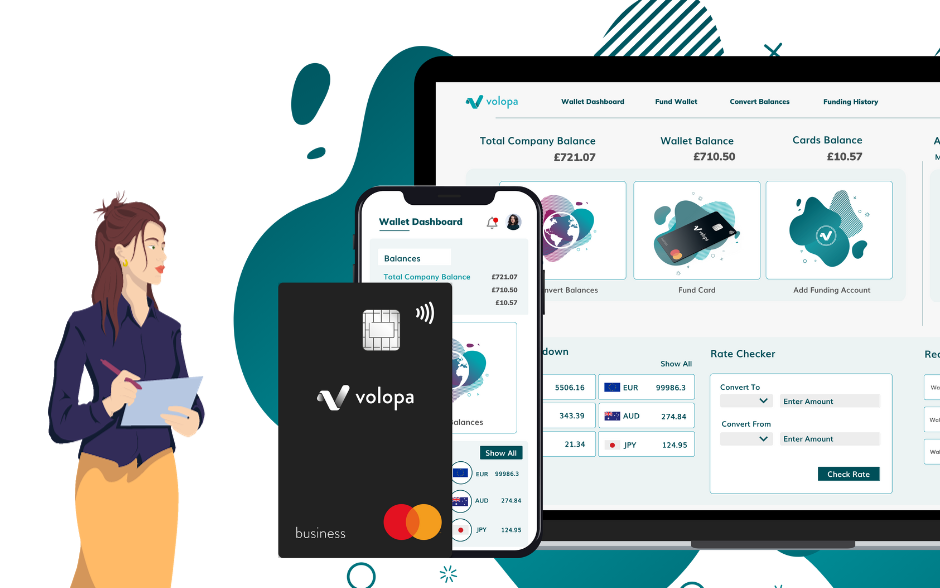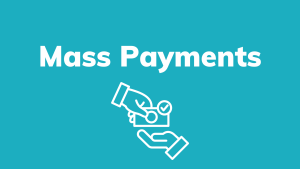Expenses done right
Employee expense fraud
Detect the warning signs and prevent it
Dealing with employee expense fraud
The current economic situation in the UK has put a lot of financial strain on families across the country. Bills are rising, interest rates are soaring, and a lot of people are having to be very careful with their money during this period of uncertainty.
It has been reported that the cost of living crisis has resulted in a significant rise in expense fraud. But, what is expense fraud? Why does it happen? How can you spot expense fraud within your business and prevent it? This blog will cover this topic and help you recognise the warning signs.
What is expense fraud?
Expense fraud is when an employee falsifies the expenses they incur whilst on the job in order to get extra reimbursement from their company. This can be done by inflating the cost of items, submitting fake receipts, or even claiming personal expenses as business expenses.
Expense fraud occurs when an employee misrepresents their expenses or invoices for goods or services received from their employer. The most common types of expense fraud include:
- Misrepresenting work-related expenses
- Double claiming expenses (for example claiming travel expenses twice)
- Exaggerating business expenses by claiming more than they actually spent (for example by claiming personal items as business expenses)
- Submitting fake receipts
Expense reimbursement fraud is a serious issue because it can cost companies a huge amount of money. False expense claims can add up quickly, often going undetected. This is a criminal offence and can have serious consequences for both the individual and the company. In addition to facing charges, the individual may also be subject to civil penalties and could be sued by the company. Expense fraud can also damage the company’s reputation, bottom line and employee morale.

Different types of expense fraud
It’s a dark day for the company when you find out that some of your employees are claiming expenses they shouldn’t be. According to The Association of Certified Fraud Examiners, there are four types of expense fraud, each exemplifying a different way your employees could be claiming back more than they are owed.
The Classic
Creating fake invoices for expenses that were never incurred.
The Creative
Finding loopholes in the system and exploiting them with fake receipts, or even just padding out legitimate receipts to increase their value.
The Sneaky
Coming up with creative ways to get reimbursed for expenses that weren’t actually incurred, for example, calling up a vendor and saying they want to place an order, but then asking if they could just send over some free samples instead of paying for them upfront because they’re short on cash at the moment.
The Procrastinator
Submitting receipts after the deadline has passed; submitting multiple copies of the same receipt; submitting receipts from vendors who are no longer in business or have since merged with other companies.
Mischaracterised expenses
A mischaracterised expense scheme is where an employee puts in a claim or multiple claims with the businesses for costs that were not work-related. For example, an employee claiming money back from the company for a personal expense.


Overstated expenses
An overstated expense scheme is where an employee makes a claim for a genuine business expense, however, they inflate the actual costs that were incurred in order to pocket the extra money.
Fictitious expenses
A fictitious reimbursement expense scheme is where an employee submits a request for the reimbursement of an expense that was entirely made up, instead of attempting to overstate business expenses or asking for reimbursement of personal expenses.


Duplicate reimbursements
A duplicate reimbursement expense is where an employee submits a claim for the reimbursement of business costs multiple times. For example, submitting two claims for fuel costs both incurred on the exact same date.
Why do some employees commit expense fraud?
As much as a lot of employers and team managers would like to think their staff wouldn’t commit reimbursement fraud, it is a very common offence. There are many potential reasons why your employees might commit fraud, such as the cost of living crisis, as previously mentioned.
The Fraud Triangle
The Fraud Triangle is a framework used to explain what drives people to act fraudulently and breakdown potential explanations into three categories.

1. Opportunity
Opportunity refers to the circumstances that allow for an employee to commit fraud within the business. Opportunities to commit fraud usually come as a result of weak internal processes, poor management, and lack of company policies.
This is the only aspect of the Fraud Triangle that the organisation has true control over, and is where preventative measures can be put in place to reduce the chances of fraud.
2. Motivation
The exploration of motivation for fraud is a tricky one, but it’s important for us to understand what motivates people to commit such crimes. Motivation, sometimes referred to as incentive, refers to the individual’s personal values and mindset towards potentially committing fraud and reasons for doing so.
As discussed previously, the COVID-19 pandemic and the recent economic decline has created a huge amount of financial pressure and uncertainty on employees. Anxiety surrounding making ends meet as well as the health of themselves and their families is a potential explanation for the recent increase in employees committing expense fraud.
This can be seen through an employee who would otherwise have no intention of committing fraud. If they are feeling pressured by their employer or if they feel like they’re not being valued enough by their organisation, they may feel like they have no other choice but to be dishonest with their employer. It’s important that organisations provide a safe space for their employees to ask questions without fear of repercussions so that they can avoid this kind of situation happening at all!


3. Rationalisation
It’s possible that employees who have had to work through the pandemic as normal, for example, coming into the office and travelling during times of high restrictions may have been left feeling frustrated and unhappy to have had their health risked. A lot of employees would have likely experienced pay freezes during this time, due to businesses being financially uncertain.
A combination of factors such as these could help to rationalise committing an offence like expense fraud, as some employees may feel like the company owes them more than their base compensation for the sacrifices made.
What steps can be taken to prevent expense fraud?
Expense fraud can be easy to commit, but very difficult for an employer to detect and prevent. However, there are some fundamental procedures you can implement within your organisation to help prevent expense fraud.
Review your expense policy
Organisations should set a clear, easy to understand expense policy and make it simple for staff to access. An effective expense policy will explain how staff should track and evidence their expenses, as well as remove any blurred lines surrounding what is considered expense reimbursement fraud within your organisation by defining it clearly.
An expense policy should be easily accessible and regularly communicated to all employees across the business. If your staff are aware of the rules and know the company is actively tracking expense claims, they will be much less likely to risk committing expense fraud.
Invest in expense management software
Expense management software is a fantastic solution for tracking and approving your team’s transactions and expenses.
At Volopa, we offer a prepaid card solution where team managers can send funds to staff using our online platform. Employees can then use their Volopa business cards to spend the money allocated to them on business-related expenses when travelling. You can set spending limits, freeze cards, capture receipts instantly, and much more.
By having these features available to you and your team, you are eliminating the need for employees to submit expense claims and have the ability to carefully monitor and control spending. In turn, this significantly reduces the probability of your staff committing expense fraud, helping you to reduce unnecessary spending and protect your bottom line.
Volopa also offers integration with Xero and Quickbooks accounts, allowing you to easily send transactions and receipts through to your preferred accounting software. This removes the need for complex spreadsheets and long paper-trails.

Learn more about Volopa’s expense management software
If you are interested in hearing more about our expense management solutions in order to reduce the likelihood of expense fraud within your organisation, get in touch with the Volopa team today!
You can book a demo of our software to try before you buy, helping you to start your Volopa journey with full confidence.
Expense reimbursement fraud
Getting started
As with any kind of fraud, expense fraud is a criminal offence that can see perpetrators face prosecution, civil penalties as well as legal action from the employer.
activated.
Reasons for committing fraud can vary based on the individual and their motivations. With the pandemic and economic crisis, a lot of people are experiencing financial strain. If a company doesn’t have effective procedures and policies in place to protect against fraud, certain employees may see this as an opportunity to overstate, duplicate or even make up expense claims.
A recent study by the Global Payroll Association in 2018 found that fraudulent activities such as exaggerating mileage and buying items for personal use then claiming them as business-related expenses is estimated to cost UK businesses around £2 billion each year.
Find out more about what Volopa can do for you



